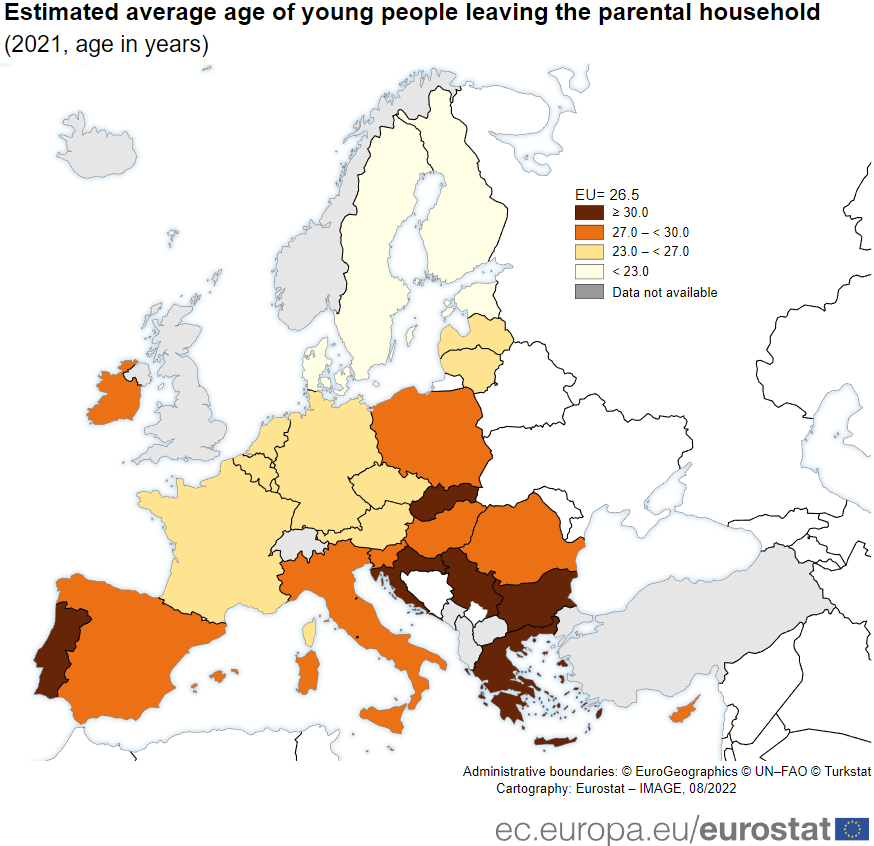As Poslovni reports, young people in Croatia, along with the Portuguese, leave their parents’ “nest” the latest. They will leave the family home, on average, only at the age of 33.3. Only the Portuguese who live with their parents three months longer are worse, according to the Eurostat survey for 2021.
Unlike Croats, Portuguese, Slovaks, Greeks, and Bulgarians, countries where young people leave their parents’ home on average only at 30 or older, young Swedes will leave at the age of 19. In Finland, on average, at 21.2, in Denmark at 21.3, and Estonia at 22.7.
Eurostat statistics show drastic differences between countries in leaving the family home among young people. Thus, in most countries of Western and Northern Europe, on average, young people leave their parents in their early or mid-20s. On the other hand, in southern and eastern countries, this average rises to the late 20s or early 30s.

Nikola Baketa, a research associate from the Institute for Social Research in Zagreb, states that there are several reasons why young Croats leave their parents’ homes late, but the main ones are economic.
“There are several aspects. The first is employment. Young people are more likely to work on a fixed-term basis and are paid less, which affects the safety and security of work. In such a working relationship, it is difficult to get a loan, which is necessary for buying real estate”, says Baketa, adding that the purchase of real estate is another problem that causes young people in Croatia to leave their parents’ homes only after 30.
“Real estate and rental prices in Croatia are high. In addition, the rent is irregular. In Croatia, there are no long-term rental policies or affordable city apartments that would make it easier for young people to become independent”, he points out.
And the authorities do not seem to care, as demonstrated by the fact that since 2017, when the National Youth Program expired, they have not bothered to bring a new one. That would at least declaratively show how the state plans to ease the position of this very heterogeneous group.
The consequences are becoming apparent, as fewer and fewer people remain in Croatia, and it is the young who most often leave the country.
Interestingly, statistics show that men in the European Union leave the family home later than women. On average, they are 27.4 years old, and women are 25.5 years old. This trend is present in all countries, say European statisticians.
Baketa assumes that this is because women get married and leave their homes earlier. But as he points out, this is only an assumption.
For more, make sure to check out our Lifestyle section.










